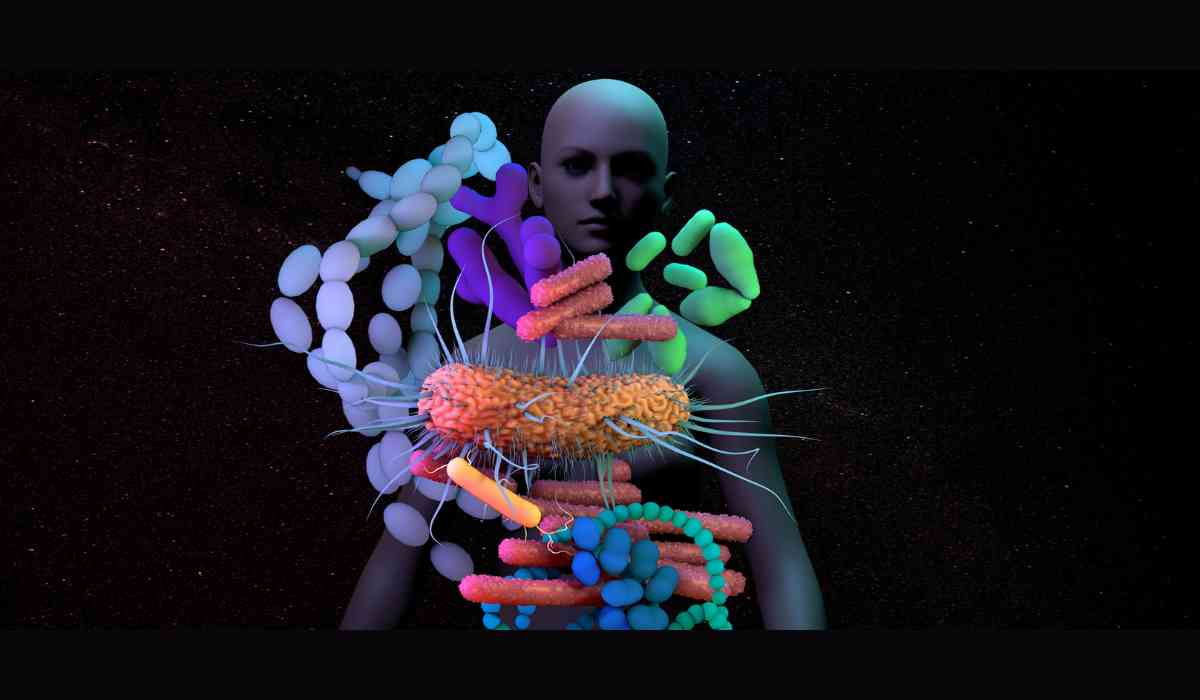The human body is a complex ecosystem comprised of trillions of cells, but it is not alone in this journey of existence. Within each of us resides a diverse community of microorganisms collectively known as the microbiome.
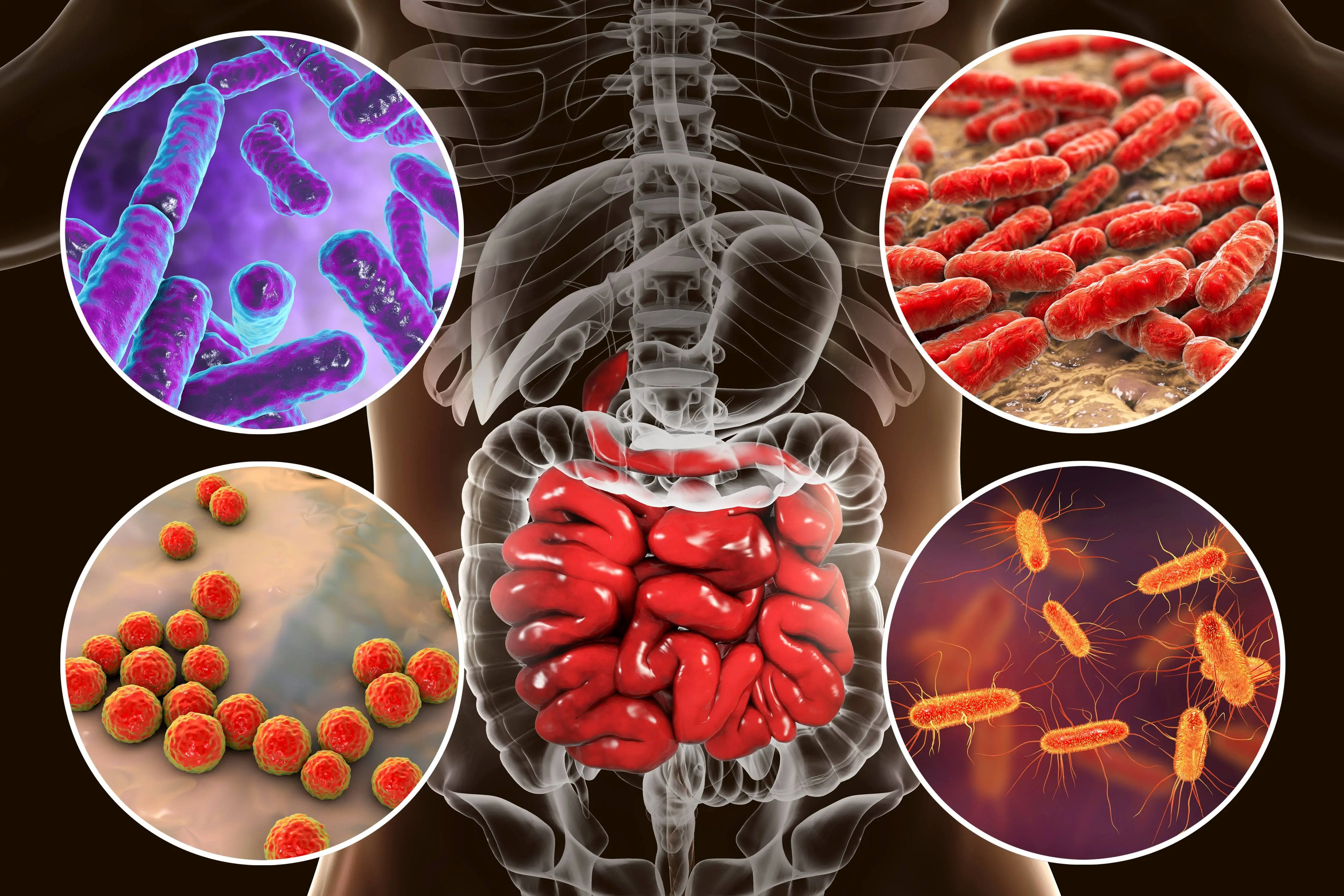
Understanding the Microbiome:
The microbiome refers to the diverse array of microorganisms that inhabit various regions of the human body, including the skin, mouth, respiratory tract, gastrointestinal tract, and more with the gut being the most densely populated. It is composed of bacteria, viruses, fungi, archaea and other single-celled organisms, and plays a crucial role in maintaining our overall health, collectively referred to as microbiota. These microbes are not merely passengers; they actively contribute to various physiological processes and play a pivotal role in the body's overall well-being.
_1706115993.jpg)
Types of Microbiome:
There are many types of microbiomes among which the major ones are:
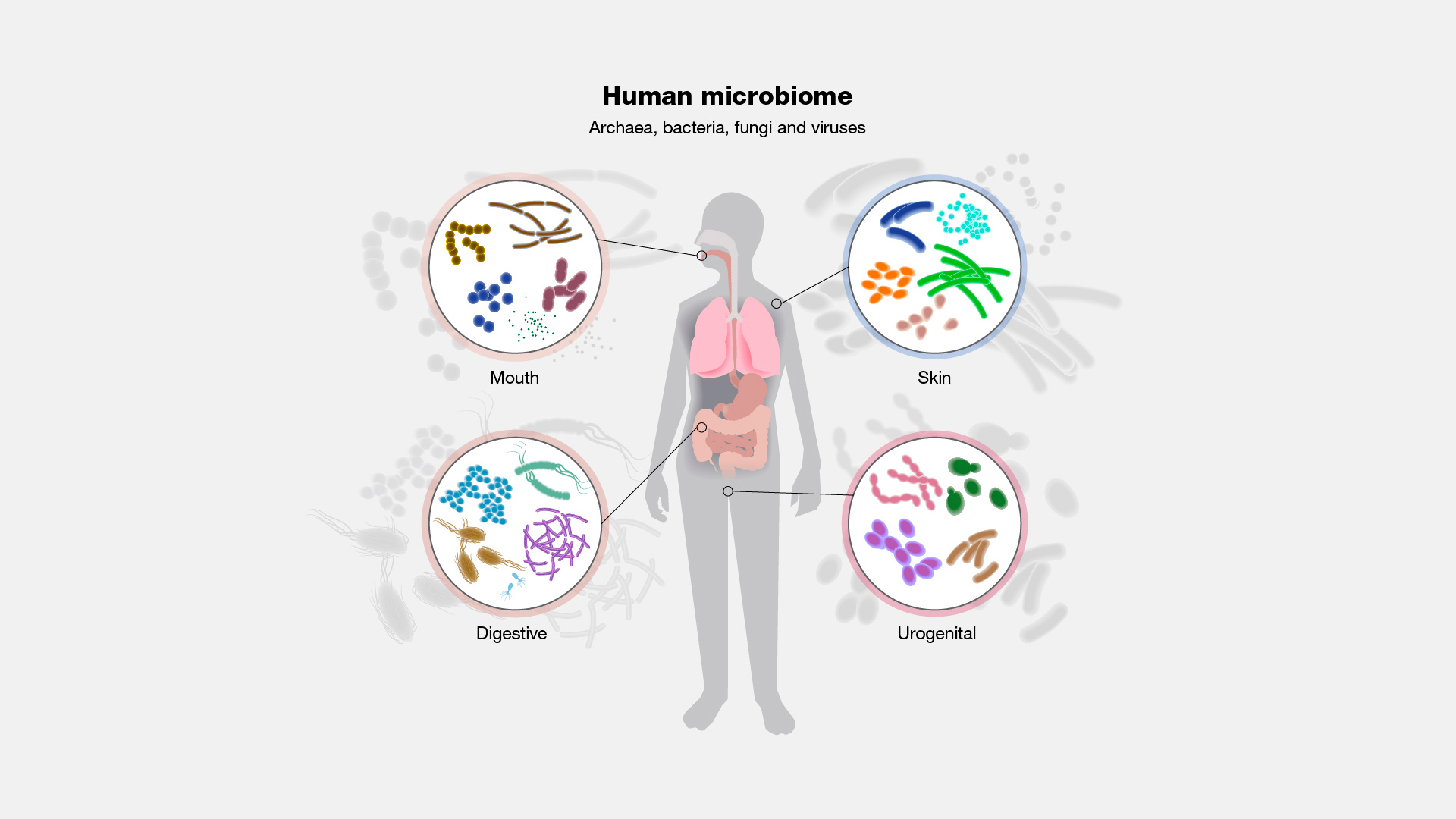
- Gut Microbiome:
The gut microbiome is the most extensively studied and influential among all microbiomes. Comprising trillions of bacteria, it aids in digestion, synthesizes vitamins, and helps regulate the immune system. A balanced gut microbiome is essential for maintaining optimal health and preventing various diseases.
- Oral Microbiome:
The oral cavity hosts a diverse microbial community, influencing dental health and impacting the digestive system. Maintaining a healthy oral microbiome is crucial for preventing dental issues and promoting overall well-being.
- Skin Microbiome:
The skin, our body's largest organ, is home to a multitude of microbes that contribute to immune defence and skin health. Disruptions in the skin microbiome can lead to conditions such as eczema and acne.
- Vaginal Microbiome:
In females, the vaginal microbiome is pivotal for preventing infections and maintaining reproductive health. Imbalances in the vaginal microbiome can lead to conditions like bacterial vaginosis.
Impact on Human Health:
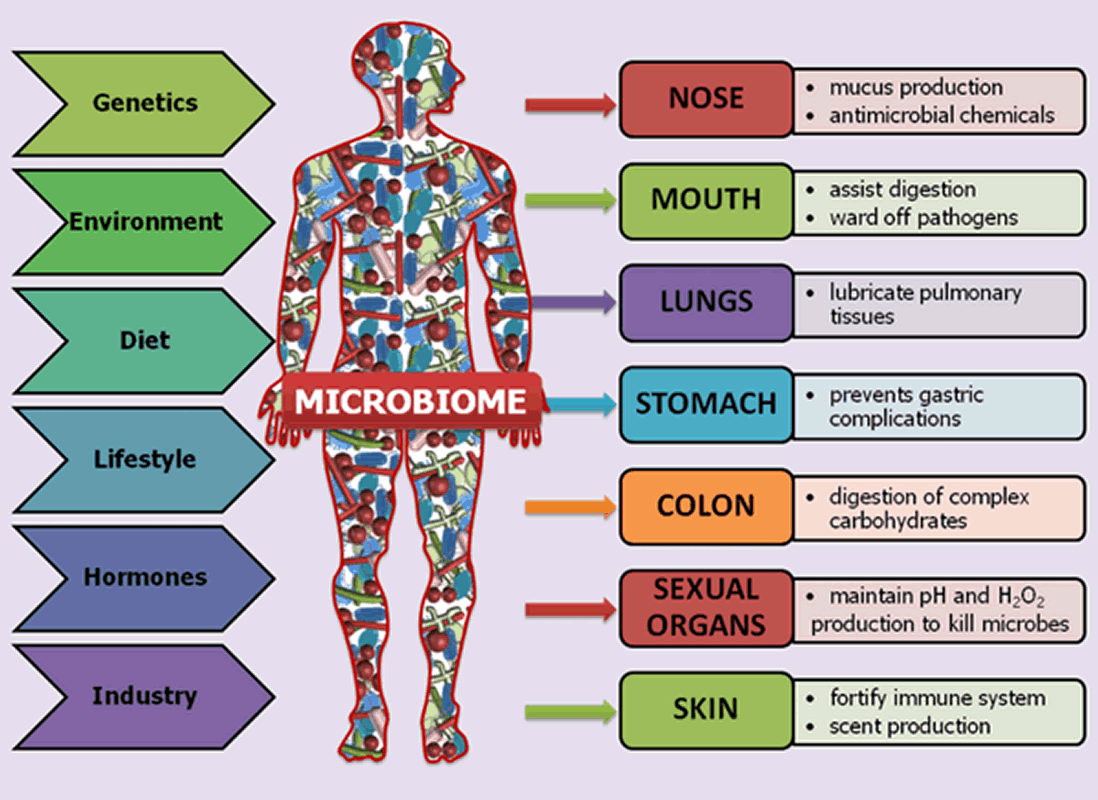
Here are several key aspects of the microbiome and its impact on human health:
- Digestive Health:
The gut microbiome, located in the digestive tract, is particularly influential in human health. It helps with digestion, nutrient absorption, and the production of certain vitamins.
The balance of bacteria in the gut is crucial for maintaining a healthy immune system and preventing the overgrowth of harmful bacteria.
- Immune System Regulation:
The microbiome plays a vital role in training and modulating the immune system. It helps the immune system recognize and respond appropriately to pathogens while preventing excessive inflammation.
A well-balanced microbiome can reduce the risk of autoimmune diseases by promoting immune tolerance.
- Metabolism and Nutrition:
The microbiome influences the metabolism of certain nutrients and plays a role in extracting energy from food.
Imbalances in the microbiome have been linked to conditions such as obesity and metabolic disorders.
- Mental Health:
Emerging research suggests a connection between the gut microbiome and mental health. The gut-brain axis represents the bidirectional communication between the gut and the brain, influencing mood, stress response, and cognitive function.
Alterations in the microbiome have been associated with conditions like depression, anxiety, and neurodegenerative diseases.
- Disease and Dysbiosis:
Dysbiosis, an imbalance in the microbiome, has been linked to various health conditions, including inflammatory bowel diseases (IBD), irritable bowel syndrome (IBS), allergies, and certain autoimmune diseases.
Researchers are exploring the potential of microbiome-based therapies, such as faecal microbiota transplantation (FMT), to treat certain diseases by restoring a healthy microbial balance.
- Antibiotic Impact:
Antibiotics can disrupt the natural balance of the microbiome by killing both harmful and beneficial bacteria. This can lead to short-term and long-term health consequences.
Efforts are underway to develop strategies for preserving or restoring a healthy microbiome during and after antibiotic treatment.
- Personalized Medicine:
The study of the microbiome has led to the concept of personalized medicine, where treatments are tailored to an individual's unique microbial profile.
Understanding the diversity and composition of an individual's microbiome may help in predicting disease risk and optimizing therapeutic interventions.
Nurturing a Healthy Microbiome:
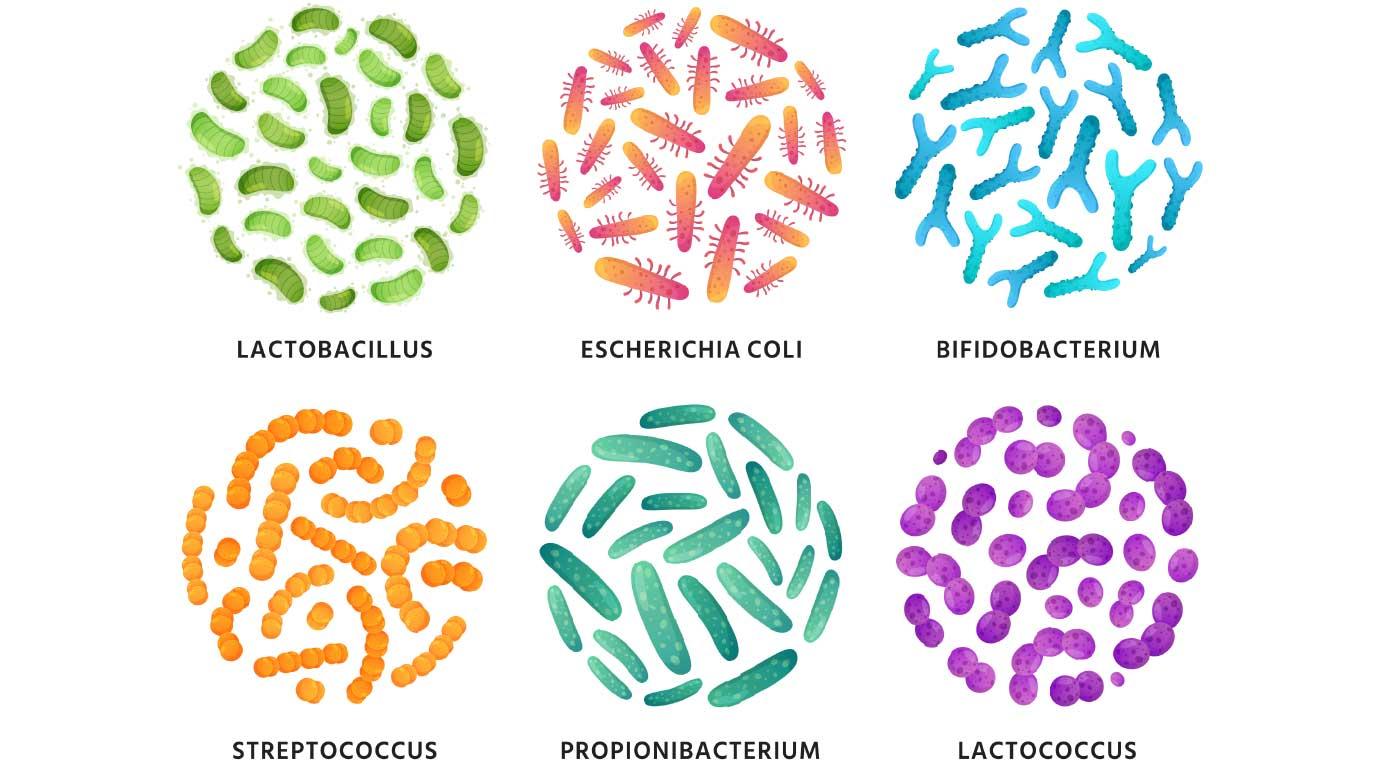
-
Diet
Eating a diverse range of fibre-rich foods, such as fruits, vegetables, and whole grains, promotes a healthy gut microbiome.
- Probiotics
Consuming foods rich in probiotics, like yoghurt, kefir, and fermented vegetables, can introduce beneficial bacteria to the gut.
- Prebiotics
These are non-digestible fibres that serve as food for beneficial bacteria. Foods like garlic, onions, leeks, and bananas are good sources of prebiotics.
- Limiting Antibiotic Use
While antibiotics are crucial for treating infections, overuse can disrupt the balance of the microbiome. Only use antibiotics when prescribed by a healthcare professional.
- Regular Exercise
Physical activity has been associated with a more diverse and beneficial gut microbiome.
- Adequate Sleep
Poor sleep patterns may negatively impact the microbiome. Establishing good sleep hygiene is essential for overall health.
The microbiome is a complex and dynamic ecosystem with a profound impact on human health. Nurturing a healthy microbiome involves adopting lifestyle and dietary practices that support the growth of beneficial microorganisms.
Image Source: Neuroscience News/CDC Blogs/Science in the news/Whatisbiotechnology.org/U/Chicago News
© Copyright 2024. All Rights Reserved Powered by Vygr Media.

